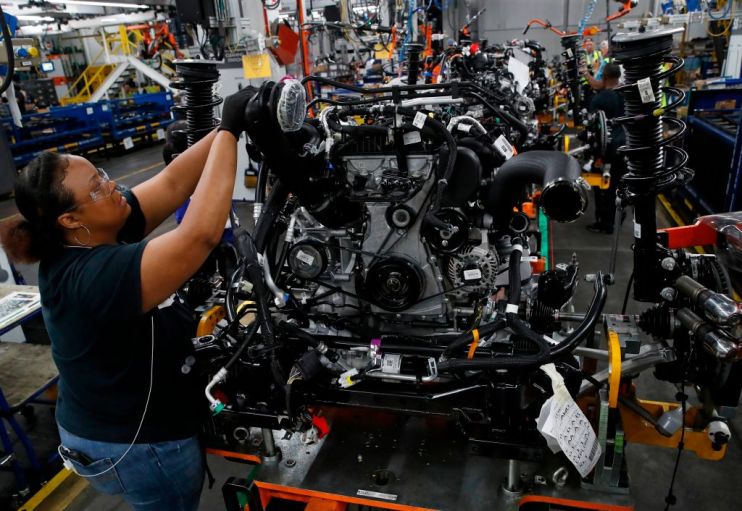UK PMI: Manufacturing grows at fastest rate in 10 months despite coronavirus

UK manufacturing grew at its fastest rate in 10 months in February, according to a flash Purchasing Managers’ Index (PMI) reading, but services fell to a two-month low.
According to IHS Markit / CIPS data, manufacturing hit 52.8, up from January’s final rate of 50.1, whilst services fell to 53.3, down from 53.9 last month.
The composite output rate was 53.3, unchanged from the end of January. Any figure under 50 indicates a contraction, while any over 50 represents growth.
The pound rose 0.3 per cent against the dollar to $1.2920 after the PMI data.
Tim Moore, associate director at IHS Markit, said: “The recent return to growth signalled by the manufacturing and services PMIs provides a clear indication that the UK economy is no longer flat on its back, with our GDP now pointing to 0.2 per cent growth through the first quarter of the year.”
Despite the positive reading, the survey showed manufacturers were seeing early signs of disruption to export sales and business operations due to the ongoing coronavirus outbreak.
Sign up to City A.M.’s Midday Update newsletter, delivered to your inbox every lunchtime
Moore added: “While there are positive signals for UK businesses on the domestic front, the latest PMI findings highlight a number of concerns from an international perspective following the Covid-19 outbreak. Service providers often commented on reduced tourism-related bookings and cancellations from overseas clients in affected markets.
“Manufacturers noted that abrupt shortages of components from China had reverberated through their supply chains and led to difficulties sourcing critical inputs.
“The downward trajectory of the suppliers’ delivery times index since January was the steepest since the survey began, exceeding the previous record set amid the UK fuel protests in September 2000”.
Duncan Brock, group director at CIPS, said that despite the threat posed by the illness, “optimism remains high, especially among service providers”:
“Though there was some relief in business costs as inflationary pressures were muted in February, service providers were still confident enough to raise prices for customers, possibly making up for lost time over Brexit uncertainty and reduced consumer spending.
“With these new challenges unfurling at the beginning of the year, 2020 is unlikely to be a quiet year for the UK economy”.
“The unchanged level of the composite PMI in February is a strong result, given the disruption to the global economy from the Covid-19 outbreak and bad weather in the UK,” Samuel Tombs, chief UK economist at Pantheon Macroeconomics, said.
Storm Ciara and Storm Dennis hurt services
He added that Storm Ciara and Storm Dennis have taken a toll on UK services, however.
“The dip in the services PMI likely reflects the hit to demand in the restaurants, hotels and leisure sector from February’s exceptionally high level of rainfall, which has been three times its long-run average.”
The insurance industry could face a £425m bill from the storm damage, as a result of flooding and high winds.
Andrew Wishart, a UK economist at Capital Economics, added that the strong data combined with the government’s change of chancellor could prove advantageous for the economy.
“The continued strength of the PMI confirms improved sentiment has helped the economy turn a corner at the start of this year,” he said. “And a new chancellor who is more of a fiscal dove than his predecessor should mean fiscal policy reinforces the recovery in economic momentum.
“That’s why, despite the external headwinds of weak growth in the euro-zone and coronavirus, we think GDP growth will rise from one per cent this year to 1.8 per cent next, eradicating any reason for the Bank of England to cut rates.”